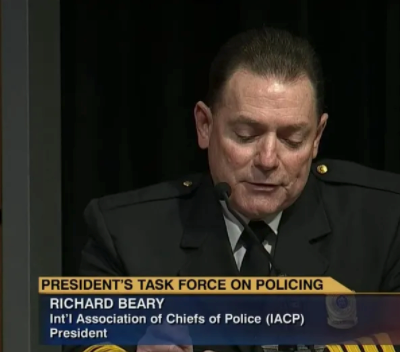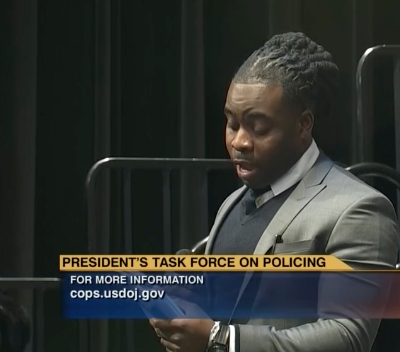background
History of the President’s Task Force on 21st Century Policing
The deaths of Michael Brown (Ferguson, MO), Tamir Rice (Cleveland, OH), and Eric Garner (New York City) in 2014, at the hands of law enforcement, became a catalyst in American policing. Their passings led to First Amendment assemblies and protests across the United States that called for police reform. In response, President Obama established the 21st Century Policing Task Force, a consortium of law enforcement, policy makers, and academics to re-assess how police interact with their communities and people of color. In addition, the Task Force held public listening sessions between January to February 2015 in the District of Columbia, Cinncinati (Ohio), and Phoenix (Arizona). This culminated into The President’s Task Force on 21st Century Policing Final Report that presented 59 recommendations for policing centered on six pillars or overarching themes.
Five years later, law enforcement agencies, communities, and other stakeholders made strides to adopt concepts underlying 21CP Task Force Report. However, while this project was well underway, another high-profile police incident, this time in Minneapolis, sparked global protests. Nevertheless, these events starkly underscored critical, ongoing deficits in trust between law enforcement agencies and the people they protect and serve. Significant work still needs to be done to improve community-police relations. This 21CP Task Force Report diffusion assessment aims to identify gaps, barriers, and opportunities for adoption. With that, agencies and communities have the data and evidence for continuing to build on the 21CPTFR’s recommendations in the next five years.
Videos from the white house
Press Conferences
videos from cspan
President’s Task Force on 21st Century Policing Convening
Members of the task Force
- Charles Ramsey, Commissioner, Philadelphia Police Department
- Laurie Robinson, Professor, George Mason University
- Cedric L. Alexander, Deputy Chief Operating Officer for Public Safety, DeKalb County, Georgia
- Jose Lopez, Lead Organizer, Make the Road New York
- Tracey L. Meares, Walton Hale Hamilton Professor of Law, Yale Law School
- Brittany N. Packnett, Executive Director, Teach For America, St. Louis, Missouri
- Susan Lee Rahr, Executive Director, Washington State Criminal Justice Training Commission
- Constance Rice, Co-Director, Advancement Project
- Sean Michael Smoot, Director and Chief Counsel, Police Benevolent & Protective Association of Illinois
- Bryan Stevenson, Founder and Executive Director, Equal Justice Initiative
- Roberto Villaseñor, Chief of Police, Tucson Police Department
- Ronald L. Davis, Executive Director, Office of Community Oriented Policing Services, U.S. Department of Justice





